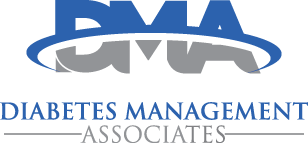Homocysteine is an amino acid produced in the body during metabolism of a common dietary amino acid called methionine. The B vitamins, particularly B2 (riboflavin), B6 (pyridoxine), B9 (folate) and B12 (cobalamin) help break down homocysteine into beneficial amino acids.
High homocysteine levels can be toxic. A young, healthy body can reduce homocysteine by converting it to non-toxic compounds. Older individuals cannot not rid the body of homocysteine as easily without adding B-complex vitamins to daily regimen.
The normal homocysteine blood range is 5-15 micromoles per liter (µmol/L) but should probable be below 8 µmol/L or less.
Elevated homocysteine levels can increase the risk of:
- Cerebral vascular disorder
- Brain disorders
- Vascular disease, atherosclerosis
- Hearing loss
The potential role of elevated homocysteine as a risk factor vascular was suggested in a study published in 2020 in the Journal of the American Heart Association. Elevated homocysteine may cause arterial damage and reduce the flexibility of blood vessels. It also contributes to oxidative stress and inflammation and reduces the production of nitric oxide, a key component for the health of vessels.
Homocysteine may also increase dangerous clotting in the blood, lower HDL or good cholesterol, and increase LDL or bad cholesterol. All of this contributes to atherosclerosis or plaque buildup in walls of arteries. This causes the arterial wall to ‘thicken’ leading to narrowing of the lumen where blood is flowing. The risk of heart attack, stroke and arterial blockage increases. Research has shown that for every 1 µmol/L increase in homocysteine, the relative risk of stroke increased by 6%.
There is evidence that homocysteine plays a role in brain again and may play a part in Alzheimer’s disease. One meta-analysis found that every 5 µmol/L increase in homocysteine levels is associated with a 15% increase in Alzheimer’s disease.
A range of studies over the past 20 years have shown that high homocysteine levels are associated with hearing loss.
A simple blood test can determine your homocysteine level. If levels are elevated, add high quality B-complex vitamins. B-complex can be a capsule taken once or twice daily or an injection and should contain at least:
- Vitamin B2 as riboflavin, 25 to 100 mg
- Vitamin B6, 100-200 mg
- Vitamin B9 as folate, 400 mcg
- Vitamin B12, 300 to 1000 mcg
Recheck homocysteine levels about three months after starting these nutrients. Repeat every year thereafter. Continue B-complex vitamins for a LIFETIME.
Dr. Julie Wood is a Nurse Practitioner and has been serving the Middle Tennessee area for more than 30 years, specializing in adults with obesity, prediabetes and diabetes. Office is located at 401 First Avenue, Mt. Pleasant, TN and statewide with telehealth. Dr. Wood can be reached at 931-325-5560, www.diabetesmgtassociates.com, [email protected].
Articles are meant to be informative and should never replace the advice of your health care provider.
7/24/22
